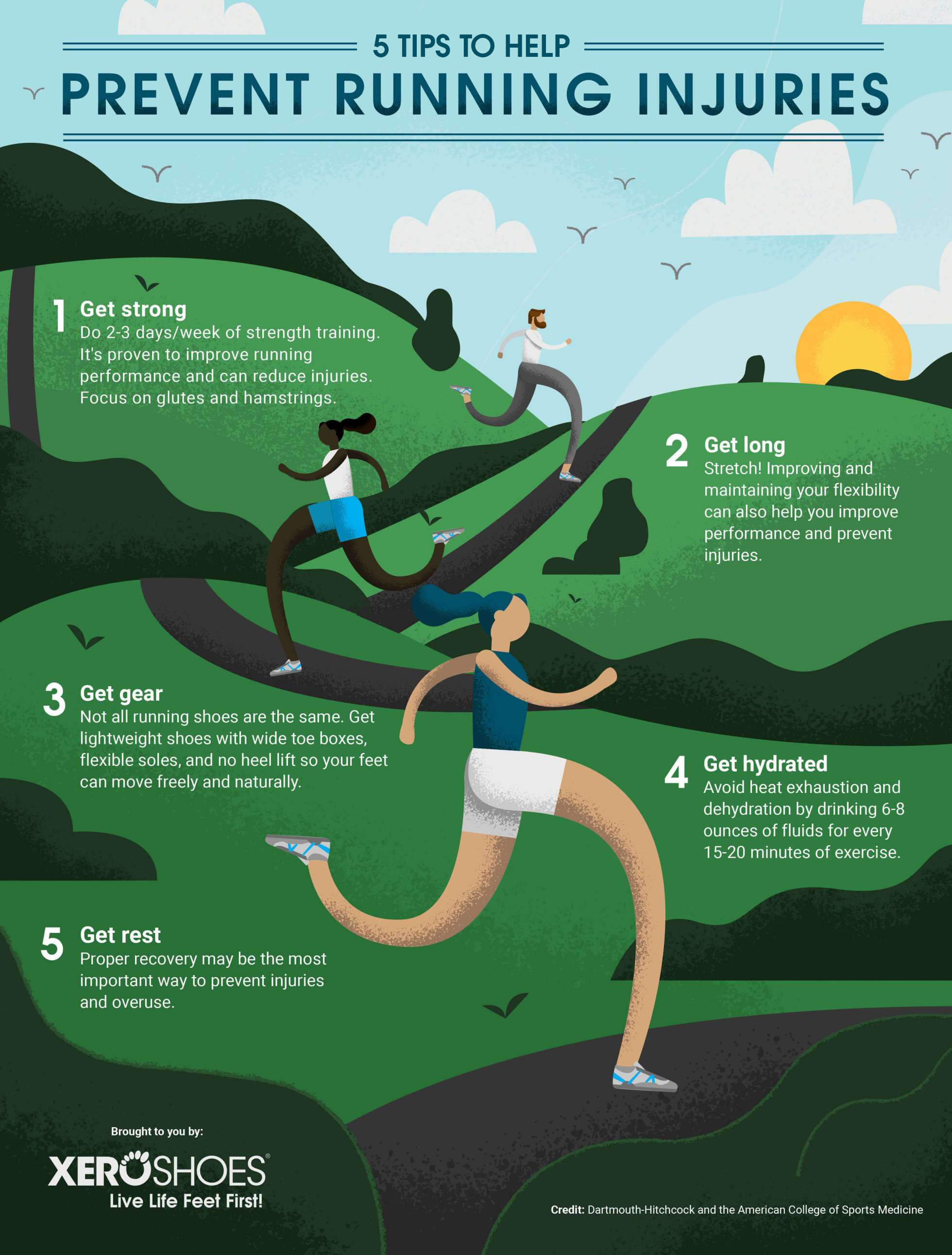Keep track of how many miles those running shoes have logged and replace them every 300 to. Our course teaches you tactics to avoid running injuries.
 How To Avoid Running Injuries Running The Guardian
How To Avoid Running Injuries Running The Guardian
Focus big time on your warm-ups Warm-ups are important always.

How to avoid running injuries. Make sure to use correct running technique to prevent injuries. Runners are notorious for common overuse injuries such as knee pain shin splints and plantar fasciitis. When youre running notice how your body feels.
Ice and cold therapy. If youve started to notice a twinge or some. We recommend investing in a quality pair of running shoes and orthotics to eliminate the chance of shin splints.
Warming up prepares our body to run more correctly and more efficiently. Apply ice packs to. I f like me you are training for your first marathon or are one of the many people who have recently taken up running you will be obsessing about injuries or rather how to avoid them.
Start running in flat and smooth surface gradually change the surfaces to avoid injuries. And when youre out for a run keep tabs on any aches or pains. Learn approaches to your running plan how to think about your running listening to your body what you can do to minimise your risk outside of running in terms of diet weight strength and more.
Staying hydrated is vital for runners too. Dont run 24 miles next week by adding all four miles to only one day of running. If you keep running your injury may get worse.
Preventing running injuries Invest in some good trainers. Elevate injured area if possible. For example if you run 20 miles over four days in a week run no more than 24 miles next week by adding one mile to each of the four days.
How to avoid running injuries now that youre pounding the pavement more often 1. About Press Copyright Contact us Creators Advertise Developers Terms Privacy Policy Safety How YouTube works Test new features 2020 Google LLC. What you eat before.
Time and orthotics are a huge help for shin splints as well as a rehabilitation plan that will help you slowly and safely get back into running to prevent reinjury. When you increase your mileage add only about a mile per day of running so that you spread the stress around. Stop Warm Up.
Avoid Running Roadside Running roadside is harmful for two reasons first there are chances of an accident second inhaling smoke emitted from the vehicle might cause several breathing disorders. A warm up fixes that by gradually introducing a large range of motion to your body. Ive run a 50K 4 mar.
Choose alternative ways to exercise while you heal such as swimming or cycling. Adequate hydration helps prevent muscle cramps and post-run muscle soreness. Build strength and endurance gradually.
Most runners new and lifetime alike deal with common aches and pains at best and sidelining injuries at worst all experienced as a result of pounding the. Running requires a large range of motion and injuries often occur when we surprise our bodies with that range. With the demands of repeated use it is hard and flirting with impossible to stay injury-free throughout a lifetime of running.
When to See a Doctor. If you notice symptoms of any of these common running injuries talk to a physical therapist who can help you get on the road. As an immediate option in a race try changing your pace up or down.
In some cases its a good idea to stop and stretch or change the surface you are running on to see if it makes a difference. As a general guideline drink about 16 fluid ounces of water two hours before you run about 5 to 10 ounces every 15 to 20 minutes while youre running and another 16 to 24 ounces afterward. Use compression to decrease swelling.
Following a progressive running program that incorporates resistance training like 30 Day Breakaway is one great way to build fitness and overall strength which may help you avoid pain and injury. The best thing about running is that you only need a good pair of trainers to do it. Other ways to treat overuse injuries include.
Apply ice to injured area 15 to 20 minutes three to four times per day. Take time off from running each week to help avoid injuries and fatigue that can occur when you push too hard.
